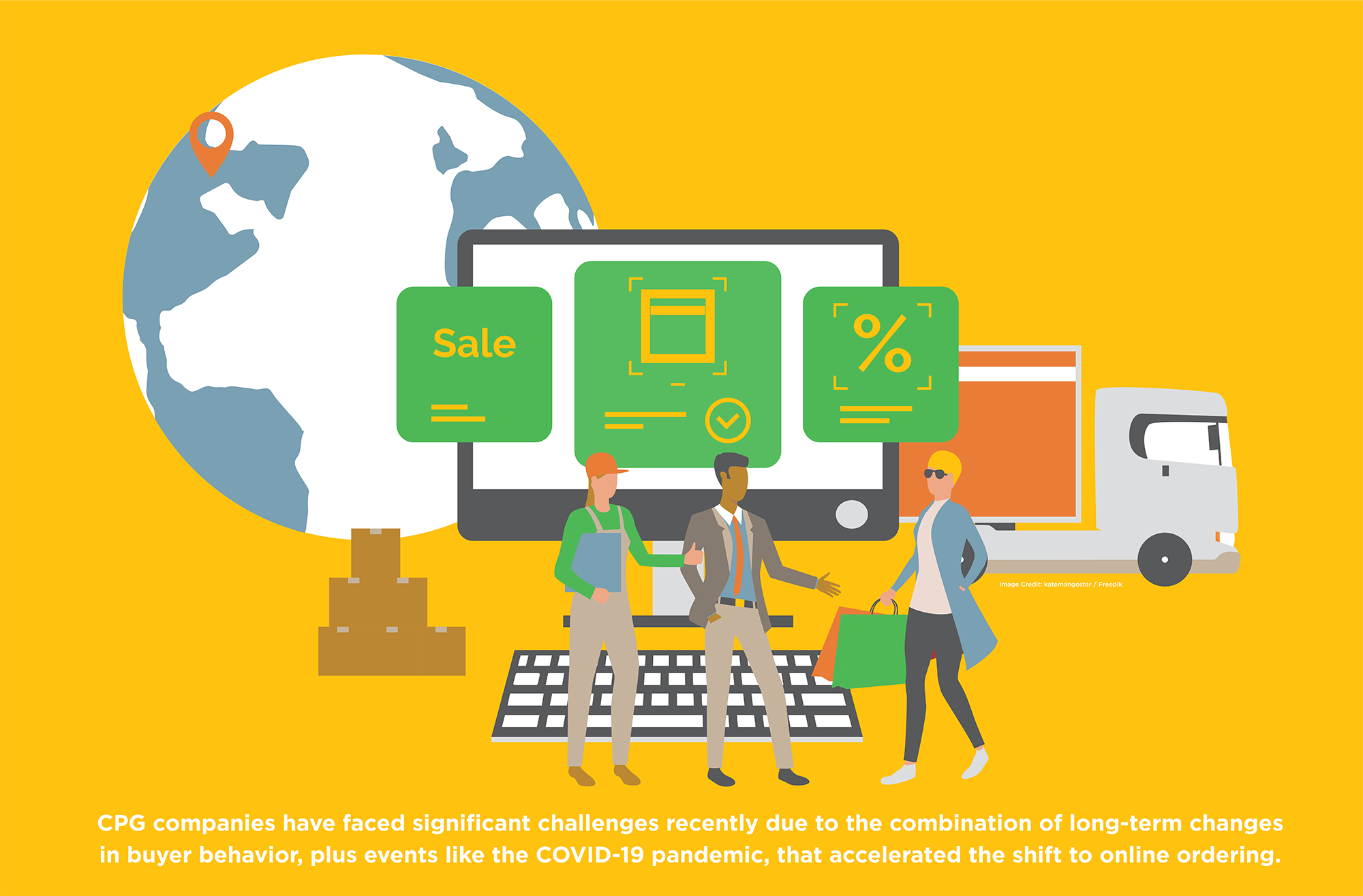The consumer packaged goods (CPG) and retail industries have both faced significant headwinds in recent years, due to the combination of long-term changes in buyer behavior, plus black swan events like the COVID-19 pandemic that accelerated the shift to online ordering. Adobe estimated that e-commerce in 2020 reached levels not previously forecasted to hit until 2024 – and the ongoing e-commerce surge is just one of 12 major trends McKinsey & Company has identified as fundamental challenges for CPG and retail firms.
How can companies in these sectors adapt to disruptions ranging from rising digital engagement to supply chain complications? Let’s take a look at a few of the biggest obstacles in the current landscape, and how real businesses have overcome them by updating their technology stacks and systems.
1. Digital Ubiquity: Anytime/Anywhere Engagement Across Mobile, Desktop and the IoT
This trend topped McKinsey’s list, and it’s the archetypal example of one that was already reshaping CPG and retail before pre-COVID-19 amplified it. Consumers now have more incentive than ever before to do their product research and order online — whether because of convenience or safety — and that has put pressure on CPG firms and retailers in several ways.
First, relatively new online communications and advertising channels like podcasts and voice assistants lower the barriers to entry for competitors, and make it easier for consumers to direct the research process and potentially switch their loyalties. Podcasts in particular are much better than display ads at generating brand recall, while voice assistants have steadily become a fast, low-friction way for consumers to look up and buy products.
Moreover, meal preparation services and food delivery are more popular than ever, potentially undercutting CPGs whose bread and butter has long been ingredients sold directly to consumers, although some of this effect is offset by a decline in restaurant eating. Also on the logistics front, some big merchants have invested in rapid delivery services for a wide range of products, often through membership networks (e.g., Amazon Prime, Walmart+, etc.) and with many private label options to choose from. Accordingly, price-sensitive and convenience-seeking consumers may switch their buying habits away from smaller firms and essentially put their shopping on autopilot.

Solution: Better Integrated, More Future-Proof IT Systems
Many organizations scrambled initially to keep up with these changes in supply, demand and buying habits during COVID-19. Similar issues will persist as consumers keep shifting to digital channels, making it important to have flexible IT infrastructure. That’s what a gourmet meat and cheese supplier sought when it enlisted Inspirage to help overhaul its transportation management systems, plus improve ERP integration amid COVID-19.
2. Fragmented and Costly Supply Chains
Supply chains help sustain and scale CPG and retail operations, but as McKinsey noted, they are sometimes neglected or not fully integrated with data sources that enable accurate planning. And that’s before getting into the other challenges now complicating industry supply chains, including but not limited to:
- Labor shortages: Pivotal jobs like truck driver can’t be automated, or at least not yet, and human truck drivers are in short supply even as consumers demand faster deliveries than ever.
- Trade regulations: The international trading environment has become volatile, as rising shipping costs from China, the new USCMA agreement and Brexit have all contributed to major changes in how firms transport goods and at what cost.
- Climate change: the United Nations estimates that productivity-related losses due to climate change, including those in the supply chain, could exceed $2 trillion by 2030.
Solution: A Truly Agile Supply Chain
Meeting consumer expectations for a seamless, safe and fast shopping experience requires the right supply chain infrastructure. One automotive retailer was looking to scale its innovative online sales model and better serve its quickly growing customer base. But to do so, it needed to outgrow its limited technological footprint and upgrade to a better Supply Chain Management solution. With Inspirage’s guidance, it moved it’s inventory management operations to the Oracle Cloud.
3. Increased Price and Value Sensitivity
The economic effects of COVID-19 plus the aforementioned supply chain challenges related to climate, trade and labor have combined to make consumers more price-sensitive. Data science firm dunnhumby found that consumers were unhappy with the shortage of promotions for CPGs in the months after COVID-19.
Moreover, ongoing vertical integration among merchants means that CPG providers face pressure from multiple sides. Stores have looked to own the entire stack from the specific products sold to how they’re delivered. Many grocers, beauty product manufacturers and big box stores now operate lucrative private labels that are often lower-cost than standalone brands and based on years of data and observations on the sales of competing products.
With shoppers looking for just the right combination of price and quality, CPGs have to find the right mix of promotional strategies while fending off competition from vertically integrated alternatives. Meanwhile, retailers have to think about if vertical integration makes sense for their operations and if so, how to support it via the supply chain.
Solution: Savings in the Cloud
Cloud-based processes can streamline operations, reducing costs and creating savings that can be passed along to consumers. A multinational food and beverage company worked with Inspirage to upgrade its OTM Cloud implementation, enabling easier access to analytics and more cost-effective operations.

Learn more about how Inspirage can help by connecting with us directly.